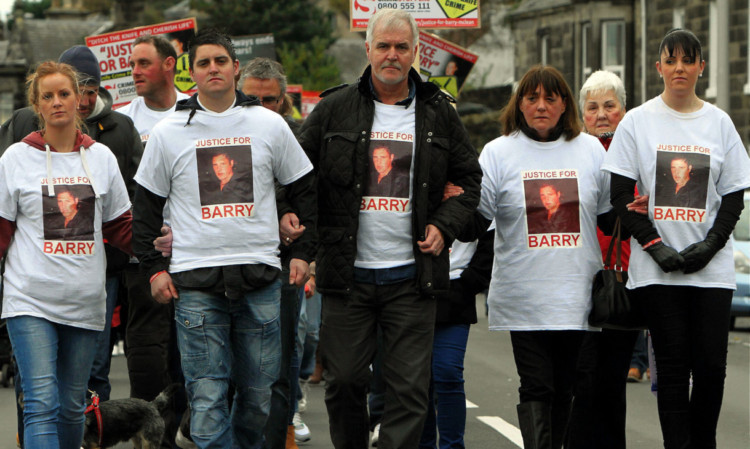The father of a young Fife man who died after being stabbed in May 2011 has added his support to Police Scotland’s stop-and-search policy.
The McLean family of Burntisland, who have been campaigning for a reduction in knife crime, are still struggling to come to terms with the death of 27-year-old Barry McLean, who left behind a baby son.
His killer, Sean Kitchener, admitted “poking” Barry with a kitchen knife but made a plea of self-defence at the High Court in Edinburgh in 2012 and was cleared of murder.
The family want the case reinvestigated and tougher penalties introduced, which they believe will reduce knife crime by “setting an example to those who carry out such horrific acts”.
Following the publication of Police Scotland’s latest stop-and-search figures, Barry’s father, Alan McLean, said he was “fully supportive” of what the police were trying to do.
He said: “I fully support the stop-and-search policy as people need to understand that prevention is better than cure and we would not like anyone to experience what we have experienced.
“People must understand the consequences and impact that is inflicted on to victims and victims’ families.”
Mr McLean said he believed the search policy works as a deterrent.
“Some people may think that the stop-and-search policy is an infringement on their human rights, but how would they feel if their loved one or friend was seriously injured or murdered due to knife crime?”
As The Courier reported, seizures of drugs, weapons and alcohol have increased by a third despite a slight fall in the number of people being searched, according to Police Scotland.
Officers carried out 519,213 searches in the eight months after Police Scotland was formed in April last year and had a “positive result” in nearly a fifth (19.7%) of cases.
The total number of searches was down 0.2% on the same period under Scotland’s eight legacy police forces in 2012, but during that period they only found something in around one in seven cases (13.9%).
Police Scotland say the rise in positive searches demonstrates “real progress in building safer communities” and has helped reduce violent crime.
Mr McLean added: “If someone knows that an individual is carrying a knife then they have a duty to report it to the police immediately. One phone call can save a life.
“We are also taking the knife crime message into local schools. We had a knife crime poster competition last year where Burntisland Primary designed posters relating to knife crime. We are taking the campaign into the secondary schools in 2014 and beyond to educate our younger generation on the consequences and impact of knife crime.”
